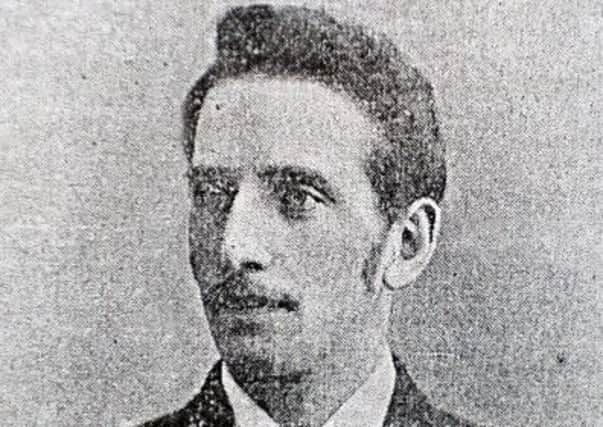China honours memory of Yorkshireman who helped build city


When a Leeds Baptist preacher set out to become a missionary at the end of the 19th-century, he could barely have imagined what impact his decision would have more than 100 years on.
Ernest Greening came from a family of preachers. His father, John was well-known as a firebrand Baptist minister in Hunslet, but when Ernest set out, his mind must have been full of the unknown.
Advertisement
Hide AdAdvertisement
Hide AdToday he is the subject of a major historical archive in the city he ended up calling home: Peichin, now called Binzhou, in the Shandong province, China.
Last week, four journalists from the a sprawling metropolis travelled all the way to Leeds to meet Ernest’s descendants, including his granddaughter Celly Rowe.
“My grandfather went to China in 1897 when he was about 25 and shortly after arriving there, he had to be evacuated because of the Boxer Rising,” says the 68-year-old retired psychotherapist. The rebellion was a violent uprising with a strong anti-foreign and anti-Christian message.
Celly continued: “He returned to China after the rising and stayed there for about 40 years. He didn’t return to Britain until he was 64. He started a family out there and raised his children out there. My mother spoke fluent Chinese.
Advertisement
Hide AdAdvertisement
Hide Ad“My grandfather started schools, a hospital, a college amongst other things. I think a lot of people feel appreciative of what he did, how he helped change things. Nowadays, it is a city with over three million people.”
Ernest is interred in Saint Pancras Cemetery, Saint John’s Wood, London in a common grave, but judging by the strength of the Chinese delegation, his impact on their city merits a much more elevated status.
Zi Zhenping, director of the people’s livelihood department at the Binzhou Daily, said: “We feel there’s a real connection between Binzhou and Leeds, which has its roots more than 100 years ago. Ernest Greening did many great things in our city.
“The history of our city is very important to us and so the story of Mr Greening and where he came from is part of that. We will be using our visit to gather information so we can better explain the link between the two cities. Celly has provided a number of pictures for which we are grateful. This is not something we could have done 100 years ago but it is something we can do today.”
Advertisement
Hide AdAdvertisement
Hide AdFeng Zhaohui, chief editor, said: “We would like to make more connections with Leeds, we’re proud of the history and glad to be able to visit your city.”
Ernest and Mary had three daughters, all born in China: Janet, Connie and Celly’s mother Eleanor Margaret (1905-1999). They were educated at home and then sent to boarding school in Chefoo.
Janet (1900-1997) was born in China during the Boxer Rebellion. She returned to China in the 1920s as a nurse working with her father in Binzhou. She later returned to England to continue working as a nurse. She did not marry.
Constance Mary-Connie (1902-1986) was born in China and after training in England, she returned to China as a missionary in 1931 and married Thomas Allen, also a missionary, in China in 1934. They had three children Elizabeth, Philip and Margaret.
Advertisement
Hide AdAdvertisement
Hide AdEleanor Margaret became a teacher and married Kenneth Robertson in 1930, the son of a missionary in Zambia, Southern Africa. He became a doctor and the family, including five children, Jenny, John, who died in 2005, Paul, Amanda and Celly.